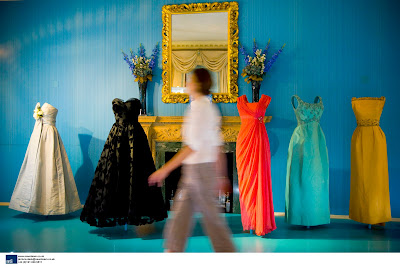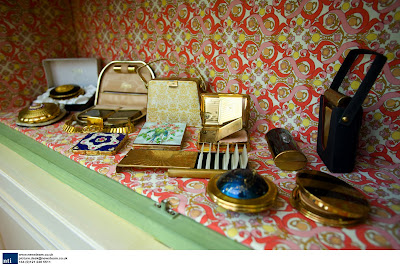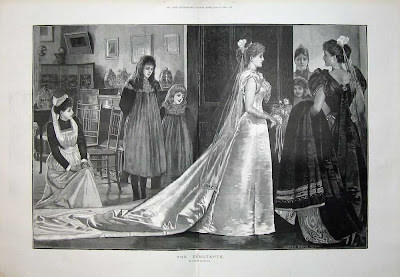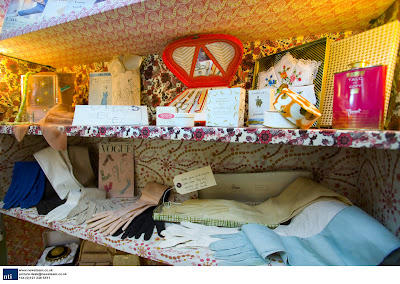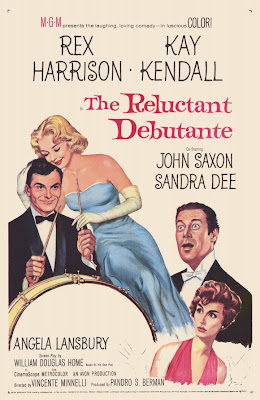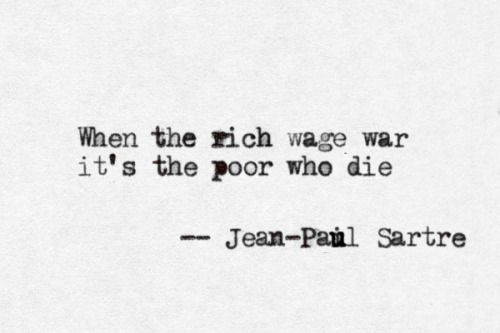#social class

People are out there hoarding hand sanitizer.
They’re driving the prices up because they’re buying all of it. Now they’re reselling it for higher and higher prices and making huge profits. Some of them are charging ridiculous prices just to let other people use it. So now there are people who can’t afford it even if some is available, because it costs so much. People are getting sick and dying because they don’t have any!
Oh wait. Did I say hand sanitizer? Housing. I meant housing. Damn autocorrect.
Photo credit: Does anyone know where this image was taken or who took it?

Status anxiety is higher at all levels of income in more unequal countries.
Source: Redrawn from Layte and Whelan (2014), data kindly provided by Richard Layte

Imprisonment rates are higher in more unequal countries
Source: Wilkinson and Pickett, The Spirit Level

Health and social problems are worse in more unequal countries
Source: Wilkinson & Pickett, The Spirit Level, 2009

Societies with wider income differences need nore “guard labor”
Source: Bowles & Jayadev, NYT 2014

Aliens: “Explain to us: How do you decide how to allocate resources and who does what work on Earth?”
Capitalist: [showing charts] “So you see, on Earth we have a free market, so resources are efficiently allocated to meet the needs of the people based on market principles like supply and demand.
Entrepreneurs own the factories and workers sell their labor to them.”
Aliens: “How can you ‘own’ a factory?”
Capitalist: “The easy. You just have a piece of paper saying that you do, and the state enforces it with police.”
Aliens: “But what I don’t understand is why do the workers obey the people with the pieces of paper that say they own everything?”
Capitalist: “No, they aren’t obeying them. They are entering into a free contract in order to earn the money they need to survive.”
Aliens: “That sounds a lot like how we kept beasts of burden as slaves in our primitive societies.”
Capitalist: “No, you aren’t getting it. It is freedom.”
Aliens: “I don’t understand why don’t the workers, being the larger class, simply destroy and eat the smaller class who commands them?”
Capitalist: [A scornful silent stare]
“Let me show you some of the charts again…”
Artist: Existential Comics

Homicide rates are higher in more unequal US states and Canadian provinces
Source: Daly M, Wilson M, Vasdev S. Income inequality and homicide rates in Canada and the United States. Can J. Crim 2001: 43:219-36
By Evan Stewart on January 18, 2018
The rise of craft beer in the United States gives us more options than ever at happy hour. Choices in beer are closely tied to social class, and the market often veers into the world of pointlessly gendered products.Classic work in sociology has long studied how people use different cultural tastes to signal social status, but where once very particular tastes showed membership in the upper class—like a preference for fine wine and classical music—a world with more options offers status to people who consume a little bit of everything.

Photo Credit: Brian Gonzalez (Flickr CC)
But who gets to be an omnivore in the beer world? New research published in Social CurrentsbyHelana Darwin shows how the new culture of craft beer still leans on old assumptions about gender and social status. In 2014, Darwin collected posts using gendered language from fifty beer blogs. She then visited four craft beer bars around New York City, surveying 93 patrons about the kinds of beer they would expect men and women to consume. Together, the results confirmed that customers tend to define “feminine” beer as light and fruity and “masculine” beer as strong, heavy, and darker.
Two interesting findings about what people do with these assumptions stand out. First, patrons admired women who drank masculine beer, but looked down on those who stuck to the feminine choices. Men, however, could have it both ways. Patrons described their choice to drink feminine beer as open-mindedness—the mark of a beer geek who could enjoy everything. Gender determined who got “credit” for having a broad range of taste.
Second, just like other exclusive markers of social status, the India Pale Ale held a hallowed place in craft brew culture to signify a select group of drinkers. Just like fancy wine, Darwin writes,
IPA constitutes an elite preference precisely because it is an acquired taste…inaccessible to those who lack the time, money, and desire to cultivate an appreciation for the taste.
Sociology can get a bad rap for being a buzzkill, and, if you’re going to partake, you should drink whatever you like. But this research provides an important look at how we build big assumptions about people into judgments about the smallest choices.
Evan Stewart is a Ph.D. candidate in sociology at the University of Minnesota. You can follow him on Twitter.
Jacqui Frost on November 30, 2017
Originally Posted at Discoveries
Many different factors go into deciding your college major — your school, your skills, and your social network can all influence what field of study you choose. This is an important decision, as social scientists have shown it has consequences well into the life course — not only do college majors vary widely in terms of earnings across the life course, but income gaps between fields are often larger than gaps between those with college degrees and those without them. Natasha Quadlin finds that this gap is in many ways due to differences in funding at the start of college that determine which majors students choose.

Photo by Tom Woodward, Flickr CC
Quadlin draws on data from the Postsecondary Transcript Study, a collection of over 700 college transcripts from students who were enrolled in postsecondary education in 2012. Focusing on students’ declared major during their freshman year, Quadlin analyzes the relationship between the source of funding a student gets — loans, grants, or family funds — and the type of major the student initially chooses — applied versus academicandSTEM versus non-STEM. She finds that students who pay for college with loans are more likely to major in applied non-STEM fields, such as business and nursing, and they are less likely to be undeclared. However, students whose funding comes primarily from grants or family members are more likely to choose academic majors like sociology or English and STEM majors like biology or computer science.
In other words, low- and middle-income students with significant amounts of loan debt are likely to choose “practical” applied majors that more quickly result in full-time employment. Conversely, students with grants and financially supportive parents, regardless of class, are more likely to choose what are considered riskier academic and STEM tracks that are more challenging and take longer to turn into a job. Since middle- to upper-class students are more likely to get family assistance and merit-based grants, this means that less advantaged students are most likely to rely on loans. The problem, Quadlin explains, is that applied non-STEM majors have relatively high wages at first, but very little advancement over time, while academic and STEM majors have more barriers to completion but experience more frequent promotions. The result is that inequalities established at the start of college are often maintained throughout people’s lives.
Jacqui Frost is a PhD candidate in sociology at the University of Minnesota and the managing editor at The Society Pages. Her research interests include non-religion and religion, culture, and civic engagement.
In 1958 for three days in March 1,400 young debutantes curtsied to Queen at Buckingham Palace for the last time. Until then every season upper class girls in their late teens had been launched into society with a formal introduction to the monarch, a ‘debut’ at a high-profile ball, and six months of parties, balls, concerts and sporting events.
Accessories belonging to the last Debs
Queen Victoria’s afternoon presentations hadcreated carriage traffic jams along Pall Mall. Outside the presentation chamber a lord-in-waiting would carefully lay out the young ladies’ three metre trains with a wand. The Deb’s name would be announced as she entered, performed a carefully practised curtsey and kissed the royal hand before shuffling backwards, curtseying all the way to the doorway.
Even in the twentieth century, any girl who wished to be presented had to apply for permission. She also needed a good character and sponsorship from an ex-debutante. If her request was granted, then she would receive a Royal summons, which had to be obeyed unless illness or death intervened.
Before arriving, the Deb had to negotiate a sartorial minefield. The Lord Chamberlain’s Office set a draconian dress code, which Lady Colin Campbell described in Manners and Rules of Good Society (1911). Edwardian Debs were restricted to a white dress with a “low bodice, short sleeves and train” and a sprinkling of tasteful “coloured or white flowers.“
Alice Miles who made her debut in the 1860s, kept a tongue-in-cheek diary of her experience on the marriage market, enduring balls full of “young men just come out or old beaux who goes to three parties every night.” She muses over the handsome Mr West, who was worth £500-1000 a year, “but unfortunately there’s madness in the family, which is rather a drawback.”
Twentieth century Debs and their mothers exchanged coded information about the young men who attended the balls, for example:
FU = Financially Unsound
MTF = Must Touch Flesh
NSIT = Not Safe In Taxis
VVSITPQ = Very Very Safe In Taxis Probably Queer.
During the First and Second World Wars, the tradition ground to a halt as it became increasingly irrelevant. In 1956 a mocking play, The Reluctant Debutante (later made into a film starring Sandra Dee) a vulgar American mother tries to trap her daughter a Duke by disguising her as a Deb, just as English mamas had done for centuries…
All colour photographs are by Richard Lea-Hair, from the Kensington Place exhibition, 'The Last Debutantes’.
Blog post from http://writingwomenshistory.blogspot.com/
the ‘will people feed you’ discourse rn is very funny and hopefully a wake up call to some of the rude freaks scattered out there across europe, but I do want to note that the cultures we’re talking about are cultures of the affluent. literally everywhere I have visited, working class people share food as a matter of course. everywhere I have visited, working class people push drinks and snacks on you the moment you walk in the door. there’s a layer to this conversation that only exists among people who have the choice to be miserly and unaffected by their neighbours behaving the same way.
the first time I experienced being completely shut out of another family’s mealtime, it was when I was a teenager on an exchange trip to the netherlands. I was staying with this family, and literally reliant on them for food and housing. The day I arrived they explained to me what time mealtimes were, and that I would not be fed unless I arrived at the table on time. One morning I was running a little behind because I had trouble figuring out how the shower worked, and when I came downstairs my hosts were already eating. They hadn’t set a place for me, and they all ignored me and continued conversing in dutch. When I timidly tried to serve myself, they gave me look as if I had just walked in off the street and started raiding the refrigerator. They were an intimidatingly affluent family.
one morning the mother had to drop me off early at my work placement, before the building opened. I was sitting outside on a wall for like 50 minutes by myself with nothing to do, and an older lady running a food cart nearby started chatting to me (she wanted to know I was okay, because I was like 15 and not in school, and was very interested to hear that I was on exchange from scotland). she offered me a free breakfast, and when I said I’d already eaten she gave me a drink and a packet of crisps to keep for lunch, and kept trying to make me try fried things that were apparently dutch specialities but were way too much for me at 8am. she was very sweet and funny, and had infinitely more in common with the poorer dutch students who I would meet at a separate pan-european thing later than with any of the kids or parents around the upper middle class academy we were paired with that year. people are people everywhere, some are just more inclined to worry about appearances than others.
There’s a sort of, “do for yourself and I’ll do for myself” that unnerved me about learning to navigate upper-class friendships and homes. After thinking about it for years, I’ve come to the conclusion that it’s ultimately about maintaining independence and avoiding the class shame of appearing to need others — but the effects manifest as a bizarre standoffishness, an artificial separation of “yours” and “mine”. The class standards they impose on themselves, are imposed on guests.
I was initially baffled that, for instance, family members or friends who come to visit you are often expected to stay in a hotel or at an AirBNB, not at your house. “But you have a whole-ass house”, I would think. “Or floors. And blankets. Lots of things. You can put them in your beds and sleep on the floor, if they don’t want the couch.” Often, they would have guest bedrooms, but these bedrooms were not offered to most visitors. So, you’ve literally got an EMPTY BEDROOM FOR GUESTS, but no?? You expect them to house themSELVES? Elsewhere?? On THEIR dollar? That’s so expensive! Also, to my mind, frankly rude!
I also noticed that my wealthier friends never pick up groceries for each other. They never call or text each other like, “yo, I’m at X, do you need anything”. I think they would risk confusion at best and deep offense at worst, if one of them got a wild hair up their ass and tried it. It’s too personal, implies some degree of inter-reliance.
It makes relationships look and feel artificially constrained.
This is all completely accurate to my experience too. I think a major cultural absence in wealthier social circles is the concept of ongoing reciprocity / gifting relationships. For me, and for more or less everyone I’ve ever met who grew up poor, it is a normal and natural gesture of closeness to offer resources when you have them and to accept resources when you need them. It’s a way of saying that you trust somebody - either you trust them to have your back when you need it, or you trust them to care for you without ulterior motives. I’m talking about small costs, grocery money, meals here and there, maybe a movie ticket if everyone is going and one person can’t stretch to afford it this month. Nobody keeps track of the expenses, you just remember who you have built those relationships with, and you share in return when you get the opportunity.
Larger costs tend to be more difficult, and that’s because often it’s impossible to be sure that you will ever be able to adequately reciprocate. As a teenager I had one friend in particular who was much more wealthy than the rest of us, and he was a wonderfully kind, warm hearted, generous person who would often offer to pay for entire outings or trips on his own so that the rest of us could participate. And it was really, really awkward, because what was a small gesture in his eyes was something that the poorest of us knew we could never pay back. He might not have cared about keeping track of the cost, but we would never be able to forget it, and that would upset the balance of the reciprocal relationship. I don’t think he ever really understood why we would turn him down, it’s nearly impossible to explain what a strong instinct it is when you have grown up with that dance culturally ingrained in you.
All of that is to say that I think my friend’s behaviour ultimately comes from the same background as the people who go through the world hoarding their resources. When you have never been in a position to need a strong relationship that afforded you emergency childcare or a meal of pizza and beans once in a while over, idk, a ski trip once a year, you can’t understand why big sporadic gifts are turned down. You can’t understand why your poor friends keep insisting on paying for their own gas or trying to do you favours you can easily afford yourself. You can’t understand why kids expect to eat dinner with you (because their families would feed your kids, if they ever needed it, and your kids will never need it).
If anyone’s interested in looking into this more from an slightly academic standpoint, there’s an economic term for a similar concept: the gift economy. “Gifts” aren’t just signals of goodwill, but an invitation or a due for an ongoing social contract. Each gift is expected to be replayed, in some form, in the future.
For example, I offer you a bowl of chips when you come into my house. I do not expect you to give me money or a pack of berries, nor do I verbally request any repayment.
However, I do expect that if I ever enter YOUR house, you offer me some kind of snack or drink. When you follow through, I offer more appetizers at my house. Or maybe you haven’t any snacks at home, but you do offer a charger when my phone is dead. It’s not about a specific trade! A contract is established without any formal, or even conscious, agreement.
Contrast this to a market or barter economies, where any items are usually payed for in money or goods/services, respectively. In these situations, a “gift” is something that isn’t repayed. Gifts are given on Birthdays or Christmas, not for gas.
And so we get back to my high school classmates asking for three dollars back, or customers at my bougie grocery store not wanting to round up 23 cents on a $300 order.
They view helping others, even in small ways, as a voluntary action to show they are a Nice Person. The payment is people viewing them very positively. To the rest of us, it’s just What You Do as a member of society. The payment is is being a member of society.
(Of course, economic terms don’t apply 1:1 to every portion of culture, but gift economies are a fine jumping-off point)

